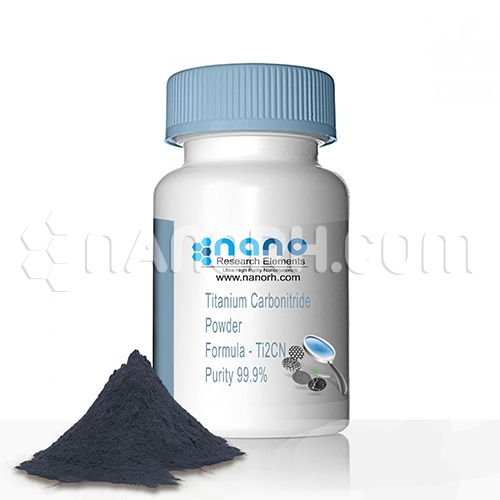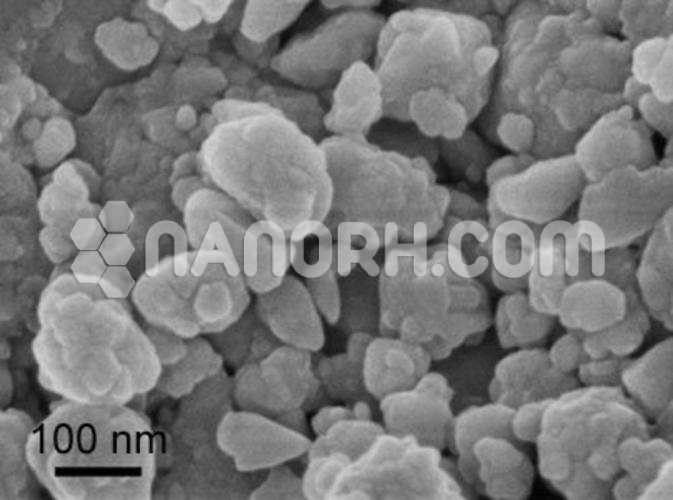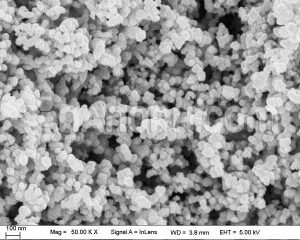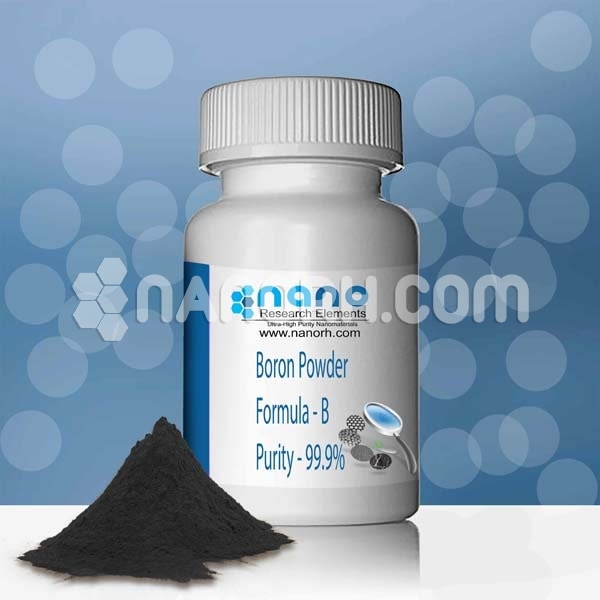| Titanium Carbonitride Powder | |
| Product No | NRE-11258 |
| CAS No. | 12654-86-3 |
| Formula | Ti2CN |
| Density | 5.08 g/cm³ |
| APS | <40µm (Can be Customized) |
| Purity | 99.9% |
| Form | Powder |
| Molecular Weight | 121.75 g/mol |
| Certificate Of Analysis | |
| Ti | 64.7% |
| C | 16.2% |
| N | 18.9% |
| Fe | 0.03% |
| W | 0.02% |
| Ti | 0.01% |
| Cu | 0.01% |
Titanium Carbonitride Powder
Titanium Carbonitride Powder are known for their outstanding properties, such as high melting point and thermal conductivity, significant hardness–toughness compromise, good oxidation and wear resistance, and low electrical resistivity. Therefore, they are widely used for the preparation of advanced engineering ceramic-based composites employed in several applications in key high technologies; metal working, electrical/electronic/automative/refractory industries. These applications are therefore calling evermore for the synthesis of powders with homogeneous composition, small grain size and narrow grain size distribution. The features mentioned ensure the reduction of heterogeneity from the initial powder mixture. In particular, TiCN Powder is employed for continuous casting of steel, provides better adhesion with metallic substrates and improves oxidation resistance (e.g. coated tip of cutting tool, thermal barrier coating), and strengthens ferrous matrices for wear resistant surfaces. The more usual rorandomly separated particle array, the extent of the reaction is often limited by the contact area among the reactants. Sometimes, such a deficiency causes unfinished reactions or undesired products. Sol–gel techniques offer the advantages to prepare very homogeneous and highly reactive starting mixtures, but an additional treatment of pyrolysis and crystallization is needed before the onset of the carbothermal reduction itself. In any case, the substitution rate of oxygen by carbon and nitrogen within the initial TiO2 lattice is low. Thus, procedures different from conventional mechanical dry mixing of powders and their subsequent carbothermal reduction/carbonitridation do not seem to be competitive in terms of quality/cost for the production of pure Titanium Carbonitride Powder.




